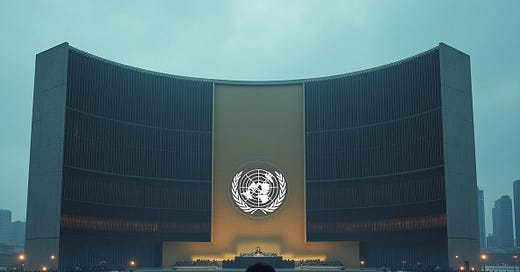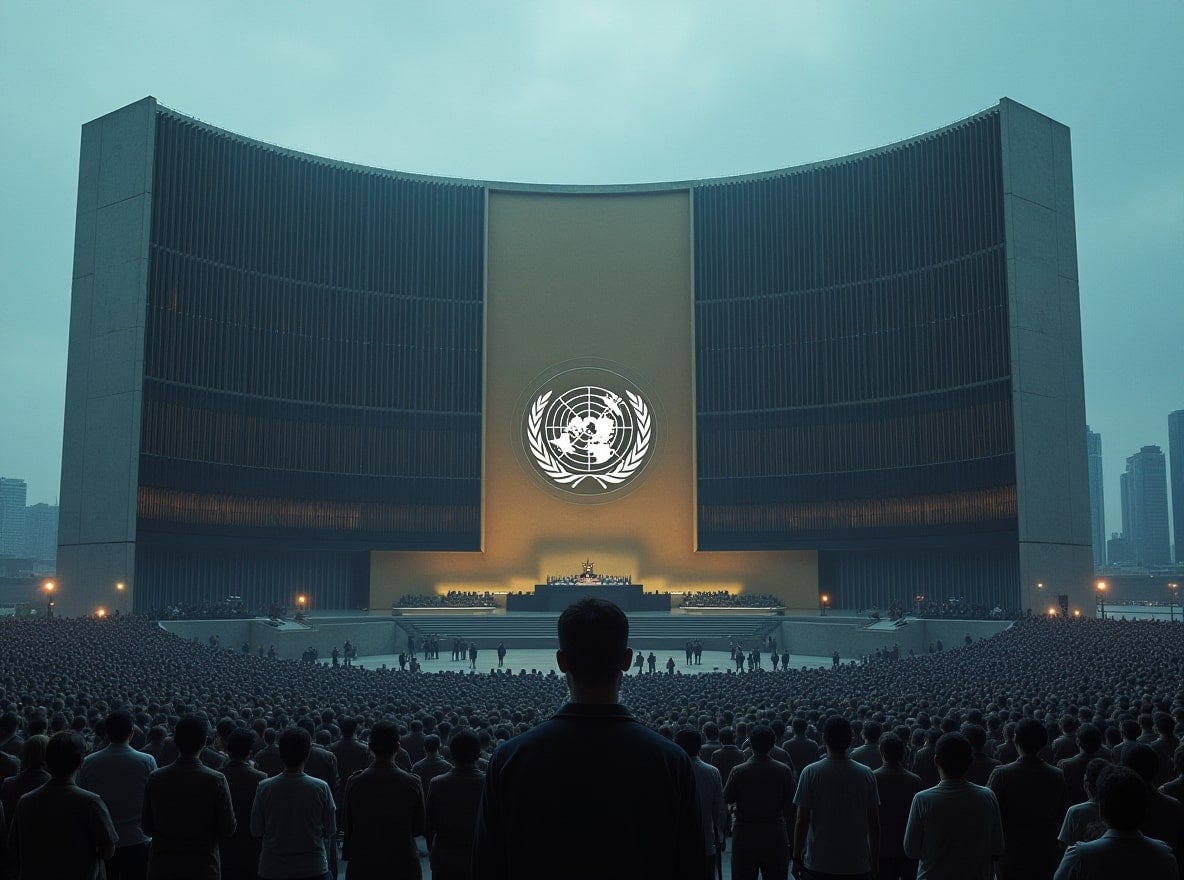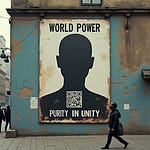"In the early 21st century, a new idea began to take hold. It was a vision of a cleaner, greener world, one in which the electric vehicle would transform the way we live. Governments, corporations, and environmentalists rallied behind it, united by the promise of a technological solution to the growing climate crisis. This, they said, was the future—a future driven by electricity, free from the choking fumes of gasoline.
But beneath this gleaming image of progress lies a more complicated truth, one rooted in the shadowy realities of energy consumption, resource extraction, and political control.
At the heart of this movement was the United Nations' Net Zero agenda. The goal was simple: to reduce global carbon emissions to zero by the middle of the century, ushering in a new era of environmental sustainability. But like many grand visions, it required centralized action. Governments around the world set ambitious targets, pouring billions into electric vehicle infrastructure, incentivizing consumers to switch to electric cars, and imposing bans on fossil-fuel vehicles. The electric vehicle became the symbol of hope—a beacon of the future.
Yet as this dream unfolded, the cracks in the narrative began to show.
The electric vehicle, for all its promises, is not as clean as it seems. While the car itself produces no emissions, the electricity that powers it often comes from dirty, carbon-intensive sources—coal, natural gas, and other fossil fuels. In regions where coal-fired power plants dominate, driving an electric vehicle one hundred miles burns approximately 15 kilograms (33 pounds) of coal. Far from zero-emissions, this silent ride is still powered by fossil fuel combustion—just out of sight, far from the smooth, clean streets of electric vehicles.
And then there’s the issue of the materials. Electric cars rely on massive batteries, which are made using rare earth metals like lithium and cobalt. These metals must be mined, often in countries where environmental and labour regulations are weak. The mining devastates landscapes, pollutes water supplies, and leaves local communities to suffer the long-term consequences of environmental degradation. All this to build vehicles that, though branded as ‘green,’ are deeply intertwined with the destructive forces of global extraction economies.
This dissonance—the clash between the clean image of the electric vehicle and the dirty realities of its production—calls into question the very nature of the solutions being offered. It raises the unsettling possibility that the electric car may not be the great environmental saviour we’ve been led to believe, but rather another cog in the machine of industrial capitalism.
But these problems go deeper than just the technology.
The push for electric vehicles is part of a broader trend: the increasing centralization of power and decision-making in the hands of governments and global organizations. The United Nations’ Net Zero agenda is, in many ways, the epitome of this. It is a global plan, managed by bureaucrats and policymakers far removed from the realities on the ground, where the people most affected by these decisions live. Like Mao Zedong’s Great Leap Forward in the 1950s, which sought to transform China’s economy through mass mobilization, the electric vehicle revolution is being imposed from above, with little regard for the local contexts or unintended consequences.
Mao’s campaign to eradicate sparrows—based on the mistaken belief that these birds were devouring China’s grain—led to ecological catastrophe. As the sparrows were killed, insect populations exploded, devastating crops and contributing to one of the deadliest famines in human history. It was a clear example of what can happen when centralized power, driven by ideology and removed from practical realities, dictates policy. Millions died.
Today, the electric vehicle revolution is also being driven by centralized power—this time, by governments and international organizations committed to the Net Zero dream. But just like Mao’s ill-fated sparrow campaign, the push for electric vehicles is blind to the complexities of the real world. Governments focus on the symbolic success of reducing emissions from tailpipes, while ignoring the broader environmental and social costs of the transition.
Then came the COVID-19 pandemic—a global crisis that, like the environmental movement, was managed by centralized bodies. The World Health Organization took the lead, issuing guidelines and recommendations to governments around the world. But their response was plagued by missteps—conflicting advice, delayed action, and an over-reliance on top-down decision-making. It became another example of the dangers of centralized control, where the mistakes of a few have far-reaching consequences for millions.
These crises—the environmental one, the pandemic—are not isolated. They are linked by a common thread: the belief in centralized solutions to complex, global problems. Whether it’s the WHO managing a pandemic or the UN pushing electric vehicles, these institutions operate on the assumption that top-down, technocratic governance is the answer. But history shows us that these kinds of solutions often fail, and fail spectacularly.
The promise of the electric vehicle was never just about technology. It was about control—control of the economy, control of the environment, and control of people’s lives. Governments and corporations seized on the electric vehicle not just because it offered a way to reduce carbon emissions, but because it offered a way to reshape the world, to remake it in their image.
But the world is more complex than any one solution can capture. The dream of a green, electric future may yet be possible, but not through centralized mandates and blind faith in technology. The real solutions lie in recognizing the diversity of local contexts, in empowering communities to create their own paths to sustainability, and in understanding that progress cannot be imposed from above.
As we look to the future, we must ask ourselves: are we willing to repeat the mistakes of the past, to trade one form of control for another? Or will we finally learn that true progress comes not from centralized power, but from a deep understanding of the world’s complexities—and a willingness to embrace them?"













Share this post